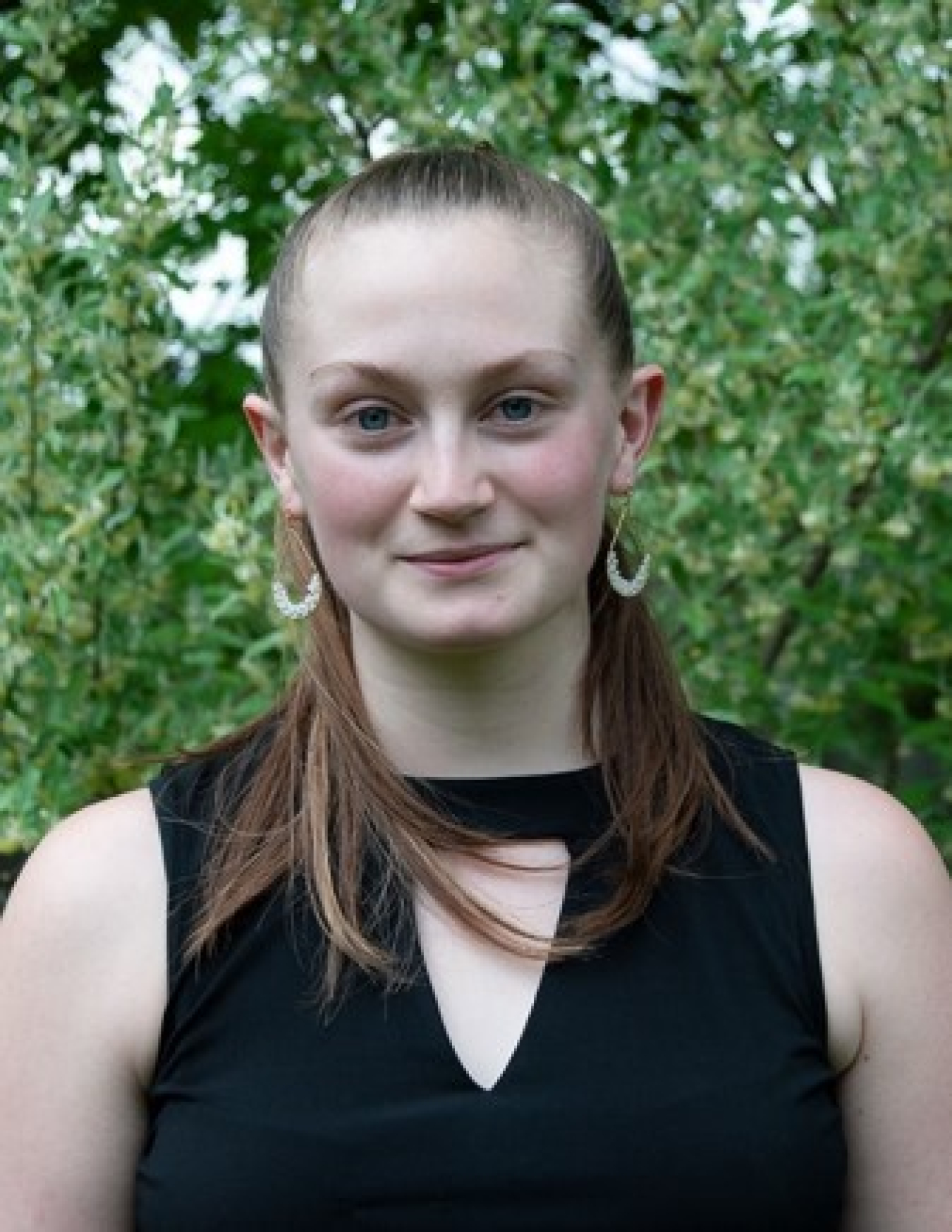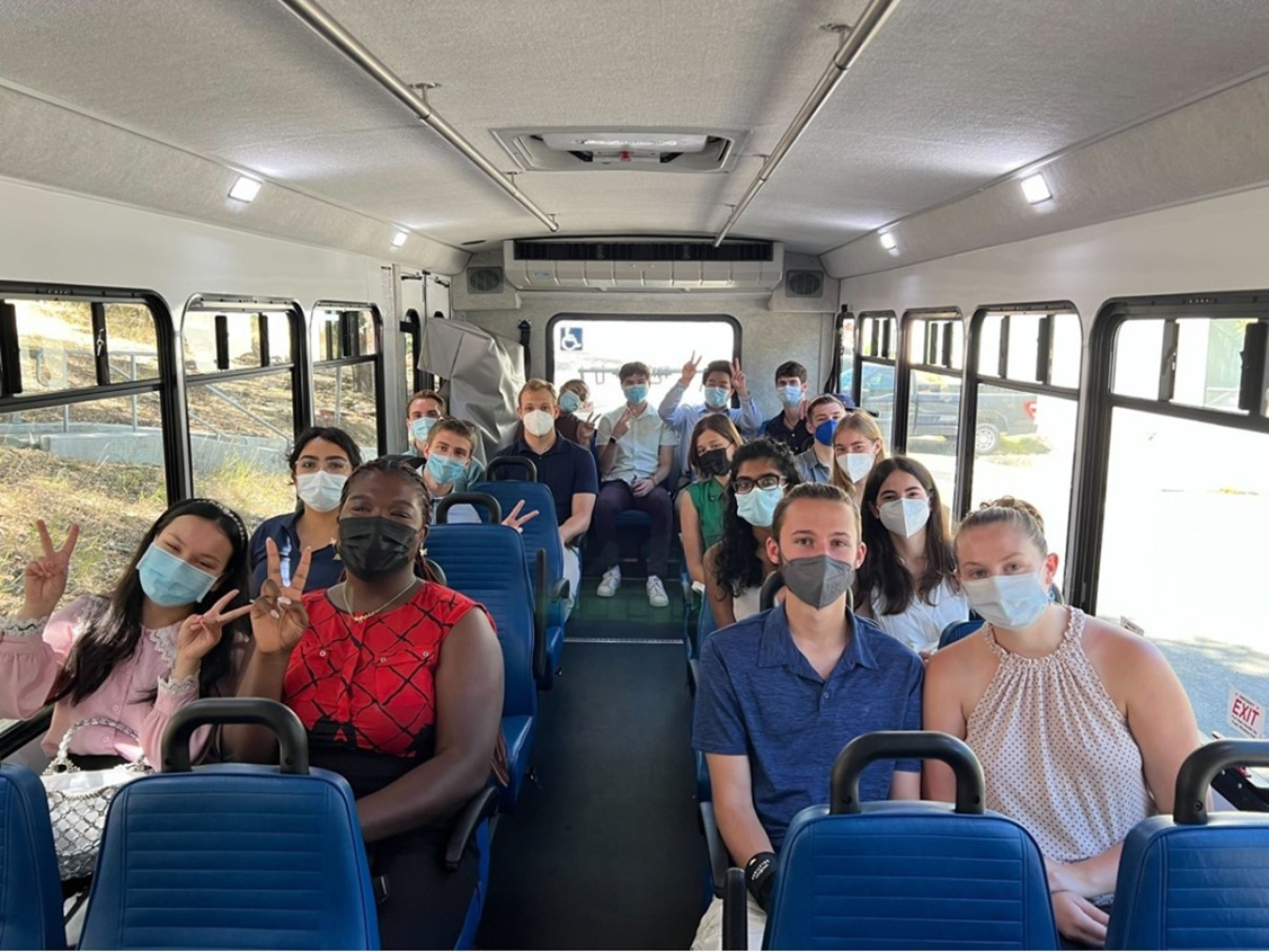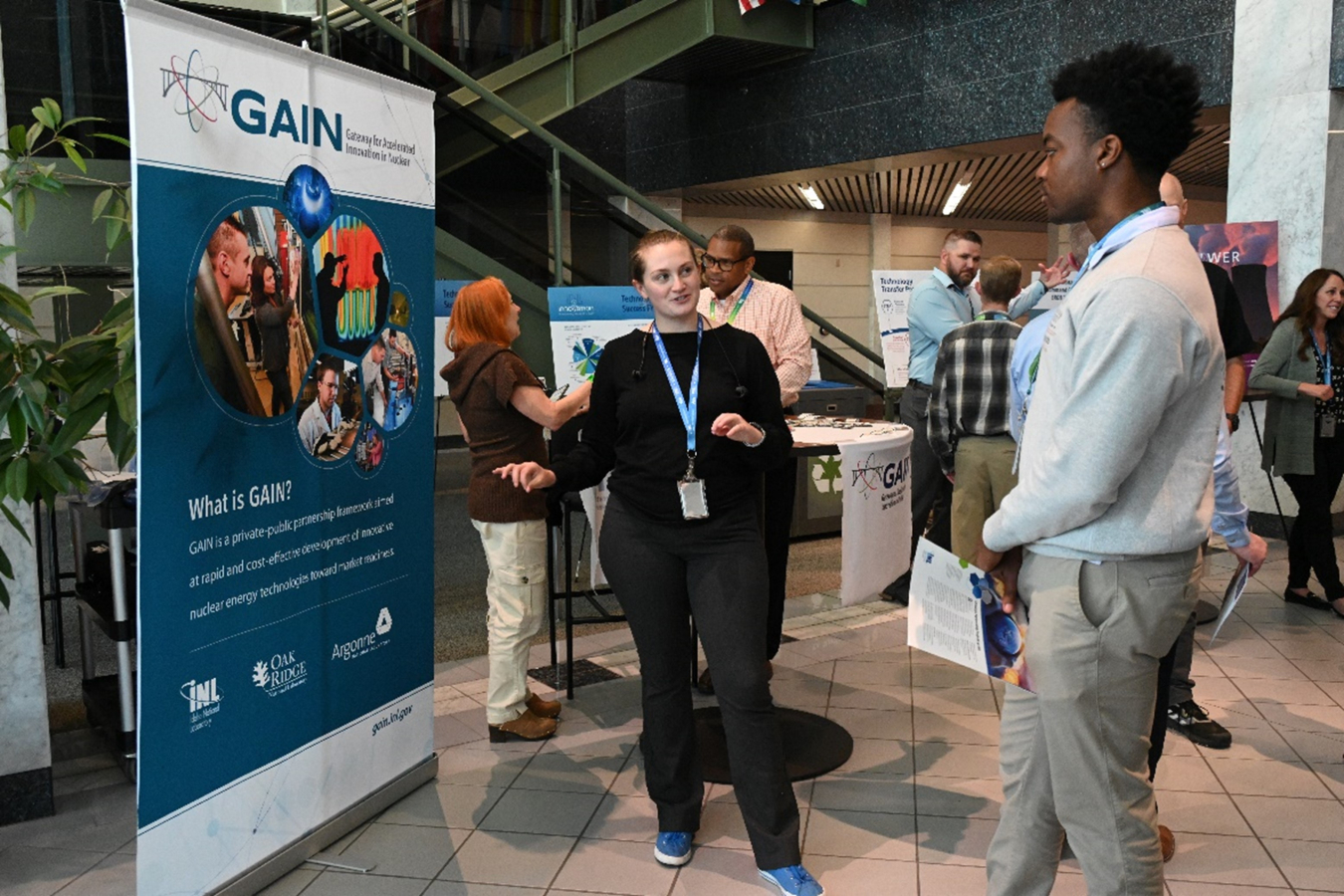In 2022, Danielle Ferreira participated in the Office of Technology Transitions’ Technology Commercialization Internship Program (TCIP) as an intern with Brookhaven National Laboratory.
Office of Technology Transitions
August 7, 2023Technology Commercialization Internship Success Story
In 2022, Danielle Ferreira participated in the Office of Technology Transitions’ Technology Commercialization Internship Program (TCIP) as an intern with Brookhaven National Laboratory. She worked on a project over the summer to determine the commercial viability of a radiation detector technology by conducting customer discovery calls, evaluating potential entry markets, and completing a commercialization feasibility analysis. Danielle also had the opportunity to network and meet researchers across the National Lab complex, which resulted in a full-time opportunity. She graduated May 2023 from Binghamton University and joined Idaho National Laboratory in June as a Technology Transfer & Intellectual Asset Management Specialist.
We’re catching up with Danielle as she reflects on her internship last summer and how that influenced her career plans.

OTT: Tell us a little bit about yourself and why you decided to apply to the Technology Commercialization Internship.
I grew up in a little town called Patterson, which is 45 minutes north of New York City, and from the time I was in high school I was a hundred percent certain I wanted to go into physics. I went to college immediately knowing I wanted a Bachelor of Science in Physics, assuming that I was going to go into research. But I have also always gravitated towards teaching positions: I was a teaching assistant three years in college; I coached soccer almost my entire life; and I was a ski instructor in high school. I realized I loved these jobs because they required interpersonal skills. So, I was looking for a position that integrated those two parts of me – my social abilities and my interest in technology and physics.
I put myself through college by working three jobs and engaging in various scholarship opportunities. One of the scholarships was Smart Energy Scholars, which is a National Science Foundation grant provided by Binghamton University for students that want to go into smart energy. One of the advisors of this program saw a posting about TCIP and encouraged me to apply.
What was your experience like during your internship? What did you work on?
I worked with Brookhaven National Laboratory under Avijit Sen, who was incredible. My main project focused on a Cadmium Zinc Telluride Frisch ring radiation detector. I conducted market research and customer discovery to determine whether this technology was competitive enough with existing technologies and whether people would want to buy it.
When I started, I assumed that the purpose of my project was to find a buyer or to get this patent onto the market. But through my research, I found that this technology was not very competitive. I drafted a feasibility study that summarized all the information I gathered and detailed the reasons why this technology shouldn’t be spun out into a company. I relayed in my final presentation to the National Labs that although this was a very cool technology, things like this already existed. It was scary to present a negative determination, but it turned out the team was happy because they could now direct the funding to more promising technologies.
After I wrapped up that project, I was able to work on another project involving the hardware that could interpret all the information coming from the radiation detector. I wrote another feasibility study and found that, in this case, the technology was feasible for commercialization and worked on getting that technology onto the market.

Were there any key skills or takeaways that you learned from the experience?
100% - I learned how to read patents, which is very important, and how to define the problem a technology might solve using customer discovery calls. My first step was always to learn about the technology – what is the patent, what kind of patents does it rely on, and where are radiation detectors already being used and produced. This led me to the different types of people I should talk to and work with throughout this process. I also learned how to ask good questions to get at the core of the problems around existing radiation detectors, without influencing people to say the kinds of things that you might want to hear.
I also realized that the Department of Energy is humongous, and OTT is just one facet of it. Some people make the joke that DOE stands for “Department of Everything” since DOE does so many different things. I saw how DOE has the power to steer not just energy, but everything onto the course of being more sustainable and affordable.

How did participating in TCIP change how you thought about your future career opportunities?
The biggest thing I didn’t realize about this internship was the opportunity to network. Throughout my projects, I was able to talk to people at different National Labs and private sector companies. I learned how to network, cold call people, and make these connections. That is actually what landed me the job I have now at Idaho National Laboratory.
My position is going to be very similar to the one I had during TCIP, except for the change in timeline. Instead of spending three months to create a feasibility study, I’ll have to sharpen my skills to be able to spend closer to a week to learn about a patent and determine whether the lab should continue funding it. I will be a go-between for the researchers and the different companies that want to work with the lab technologies. My role will be around “transitioning” the technologies that exist in the lab into the real world. The internship was incredible and now it’s brought me here to this full-time job at Idaho National Labs. For students considering applying to the Office of Technology Transitions internship, it really is a life-changing experience.
Technology Commercialization Internship Program is a unique, paid opportunity for undergraduate STEM and business students to experience the Department of Energy’s world-class National Lab system, boost their entrepreneurial thinking, and explore energy technology markets. Interns will have the opportunity to engage with National Laboratory mentors and learn about technologies at their partnered Laboratories. This internship focuses on the business side of technology commercialization where interns learn skills such as customer discovery, value propositions development, and market sizing. To learn more, visit Technology Commercialization Internship | Department of Energy.

